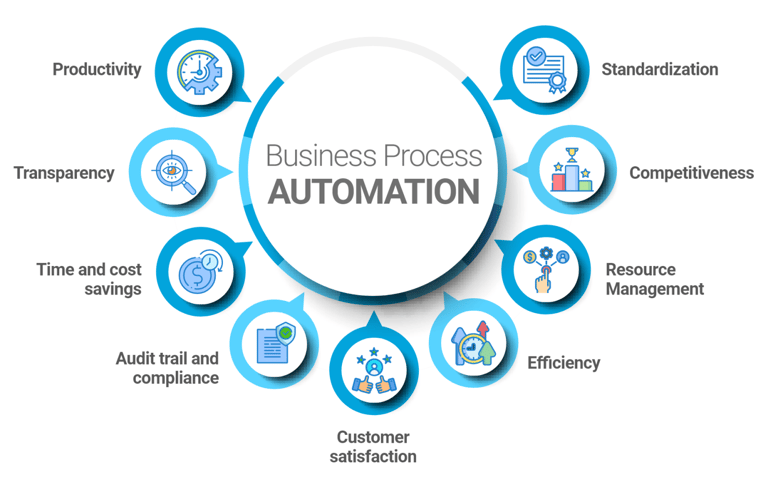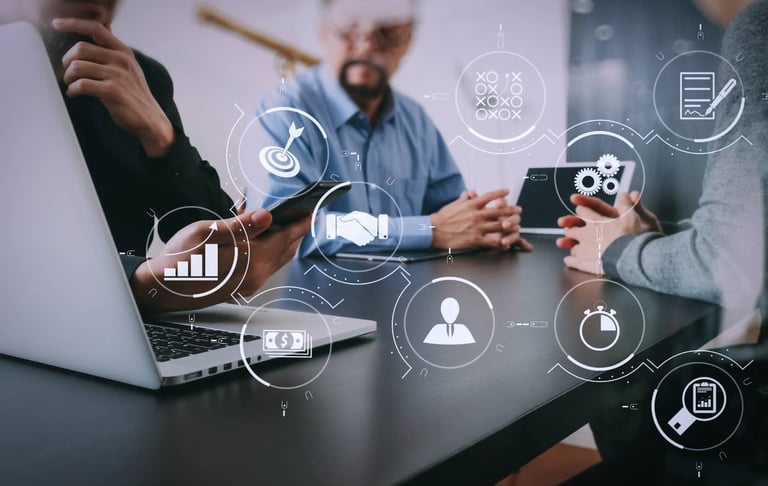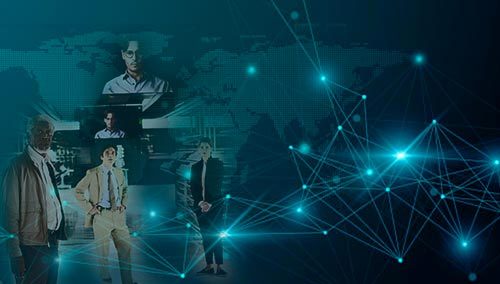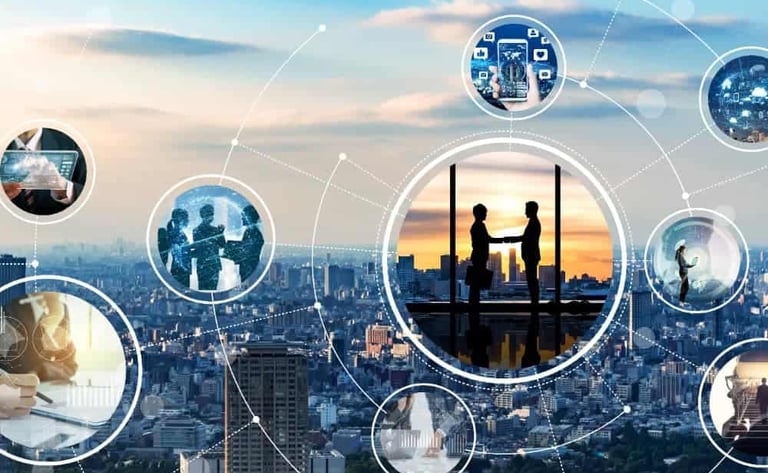The landscape of professional communication has undergone a revolutionary transformation with the emergence of artificial intelligence technologies that are fundamentally reshaping how organizations create content, manage relationships, and engage with their audiences. These sophisticated AI-powered tools represent more than just technological conveniences—they serve as strategic multipliers that enhance human creativity, streamline complex workflows, and provide unprecedented insights into communication effectiveness across multiple channels and platforms. From content generation and optimization to crisis management and media monitoring, AI communication tools are empowering professionals to work more efficiently while maintaining the personal touch and strategic thinking that define exceptional communication practice. The integration of these technologies into daily workflows enables communication professionals to focus on high-level strategy and relationship building while automated systems handle routine tasks, data analysis, and performance tracking with remarkable precision and speed.
Whether through intelligent writing assistants that help craft compelling narratives, advanced analytics platforms that decode audience sentiment in real-time, or sophisticated chatbots that maintain consistent brand voice across customer interactions, AI tools are creating new possibilities for personalized, data-driven communication at scale. This technological evolution represents not just an upgrade to existing processes but a fundamental shift toward more intelligent, responsive, and effective communication strategies that can adapt to rapidly changing digital landscapes and increasingly sophisticated audience expectations. AI tools are transforming communication by automating tasks, enhancing content creation, and providing valuable insights. Popular tools include ChatGPT for content generation, Google Gemini for real-time information, and Midjourney for visual content. AI also powers chatbots, virtual assistants, and communication coaches like POISED, which offers real-time feedback on online meetings.


The practical applications of AI-driven capabilities are already reshaping how professionals communicate across industries. From marketing teams leveraging natural language processing to tailor messages for diverse audiences to business leaders using sentiment analysis to gauge stakeholder reactions, AI has moved from experimental technology to essential infrastructure. These tools democratize expertise that was once available only to large organizations with substantial resources, enabling small teams and individual creators to compete on a level playing field while maintaining the nuance and personalization that modern audiences demand.
AI tools are transforming communication by automating tasks, enhancing content creation, and providing valuable insights. Popular tools include ChatGPT for content generation, Google Gemini for real-time information, and Midjourney for visual content. AI also powers chatbots, virtual assistants, and communication coaches like POISED, which offers real-time feedback on online meetings.
Benefits and Challenges
While AI tools offer significant advantages in communication—such as increased efficiency, consistency, and scalability—they also present notable challenges. On the positive side, AI can handle repetitive tasks, analyze large datasets for audience insights, and maintain 24/7 availability through chatbots. However, concerns include potential loss of personal touch, over-reliance on automation, and the risk of generating inaccurate or biased content. Additionally, users must navigate the learning curve associated with new tools and remain vigilant about data privacy and security when sharing information with AI platforms.
Use Cases and Industry Impact
AI communication tools have proven particularly transformative across various industries. In customer service, AI-powered chatbots handle thousands of inquiries simultaneously, reducing wait times and operational costs. Marketing teams use AI for personalized email campaigns and social media content scheduling. In education, AI tutors provide instant feedback to students, while healthcare providers use AI assistants to communicate diagnoses and treatment plans more clearly. Corporate environments benefit from AI meeting summarizers and translators that break down language barriers, making global collaboration more seamless than ever before.
Ethical Considerations and Best Practices
As AI becomes more integrated into communication, ethical considerations must guide its use. Transparency is essential—audiences should know when they're interacting with AI rather than humans. Users should fact-check AI-generated content, as these tools can produce plausible but incorrect information. It's also important to respect intellectual property, avoid using AI to create manipulative or deceptive content, and ensure accessibility for all users. Best practices include using AI as a collaborative tool rather than a replacement for human judgment, maintaining your authentic voice, and regularly reviewing AI outputs for accuracy and appropriateness before sharing them with your intended audience.
AI Tools vs. Traditional Communication Methods
AI tools complement rather than replace traditional communication methods, each offering distinct advantages. Traditional methods—such as face-to-face conversations, handwritten notes, and carefully crafted speeches—provide authenticity, emotional depth, and human connection that AI cannot fully replicate. They allow for nuanced non-verbal cues and spontaneous interaction. AI tools, conversely, excel at speed, scale, and data processing, making them ideal for handling routine communications and large-volume tasks. The most effective communicators blend both approaches: using AI to handle logistics, drafts, and analysis while reserving human touch for relationship-building, complex negotiations, and situations requiring empathy and creative problem-solving.


The strategic and mindful embrace of workplace technology represents more than just operational efficiency—it fundamentally reshapes how teams connect, innovate, and achieve their goals together. When businesses move beyond simply acquiring the latest tools to thoughtfully integrating technology that aligns with their culture and objectives, they unlock transformative potential that extends far beyond basic productivity gains. This approach creates workplaces where remote and in-person employees feel equally valued and connected, where data-driven insights inform better decision-making, and where routine tasks are automated to allow human creativity and problem-solving to flourish. Ultimately, organizations that balance technological advancement with human-centered implementation discover that their investment in digital tools becomes a catalyst for building stronger relationships, more dynamic collaboration, and a more resilient, adaptable workforce prepared for the challenges and opportunities of tomorrow's business landscape.
AI Tools for Communication Professionals:
Content Creation and Optimization:
ChatGPT: For generating first drafts of content like press releases, social media posts, and email campaigns. It can also be used for brainstorming and research.
Jasper: A generative AI platform for writing and marketing, offering tools for brand messaging and creative briefs.
Grammarly: Helps with writing and editing content, improving clarity and accuracy.
Hypotenuse AI: A press release writing tool.
CopyLeaks: For detecting plagiarism and AI writing.
DeepL: For translating content.
Canva: For creating visuals.
Wordtune: Helps refine and optimize content.
Outreach and Media Relations:
Pitchbox, Respona, and PressPal.ai: Tools for automating outreach, managing media relationships, and enhancing personalized communication with journalists and influencers.
Social Media Management:
Hootsuite, Buffer, Sprout Social: Streamline social media scheduling, engagement, and performance tracking.
Media Monitoring and Analysis:
Cision Comms Cloud, Meltwater, Mention, and Talkwalker: Track brand mentions, sentiment analysis, and media trends.
Crisis Communication:
Talkwalker: Offers robust crisis communication features, including advanced AI capabilities for finding brand mentions.
Internal Communications:
Synthesia: A text-to-video tool that can turn text messages into engaging video clips.
Jasper: Can be used for creating effective employee communications.
Poised: Offers real-time feedback during online meetings to improve communication skills.
Virtual Assistants and Chatbots:
ChatGPT, Bard, and Co-Pilot: Provides conversational AI for various tasks, from answering questions to assisting with problem-solving.
Customer Relationship Management (CRM):
Zoho CRM: An AI-powered platform for streamlining sales, marketing, and support processes.
Salesforce Einstein: Integrates AI into the Salesforce platform to boost productivity and improve customer communications.
When organizations thoughtfully assess their team members' technical capabilities and tailor their communication accordingly, they create an environment where technology serves as a bridge rather than a barrier to effective collaboration. This means providing comprehensive training for complex systems, offering multiple channels for different comfort levels, and ensuring that technological solutions genuinely address real workplace challenges rather than creating unnecessary complexity. Leaders who take the time to understand their employees' diverse technical backgrounds and adapt their approach accordingly often find that technology adoption becomes more natural and sustainable, leading to higher engagement rates and more successful implementation of digital tools across all levels of the organization.




Key Aspects of This Revolution include:
Digital Communication Channels: A shift from traditional media to digital forms like email, instant messaging, and social media. Email provided faster business communication, instant messaging apps enabled real-time conversations, and social media allowed for global sharing.
Faster and More Efficient Communication: Technology allows for real-time global connection.
Increased Collaboration and Globalization: Communication technology facilitates global business collaboration and cultural exchange.
New Forms of Interaction: Social media has introduced communication forms like memes, emojis, and hashtags.
Revolutionized the Workplace: Digital tools like Zoom and Microsoft Teams enable remote work and online learning.
Future Trends Shaping Communication include:
5G Connectivity: Will offer faster speeds and enable the Internet of Things.
Artificial Intelligence (AI): AI-powered tools will enhance customer service and automate tasks.
Augmented and Virtual Reality (AR/VR): These technologies are expected to revolutionize interactions like virtual meetings and education.
Quantum Communication: Promises ultra-secure communication channels.
Technology transforms communication, making it faster, more efficient, and more accessible, but also raising concerns about issues such as unequal access to technology and potential misuse of personal information. Over-reliance on digital communication can also affect interpersonal skills. As we navigate this digital communication landscape, the key lies in striking a thoughtful balance that harnesses technology's remarkable capabilities while preserving the human elements that make communication meaningful and authentic. Organizations and individuals must remain vigilant about addressing the digital divide to ensure equitable access to these powerful tools, while also implementing robust privacy protections and digital literacy programs that empower users to communicate safely and effectively. The future of communication will likely depend not on choosing between digital and traditional methods, but on thoughtfully integrating both approaches to create richer, more inclusive interactions that leverage technology's efficiency while maintaining the empathy, nuance, and genuine connection that define truly effective human communication. By approaching technological advancement with intentionality and awareness of its limitations, we can build communication systems that enhance rather than replace our fundamental capacity for understanding and connecting with one another.
Technology has revolutionized communication, changing how people connect, collaborate, and share information. This has fundamentally transformed how we communicate, shifting from traditional media to digital channels such as email, instant messaging, and social media that enable real-time global connections and unprecedented collaboration. This revolution has introduced new forms of interaction through memes, emojis, and hashtags while revolutionizing workplaces with tools like Zoom and Microsoft Teams that facilitate remote work and online learning. Looking ahead, emerging technologies like 5G connectivity, artificial intelligence, augmented and virtual reality, and quantum communication promise to further enhance communication speed, security, and immersive experiences. However, this transformation brings significant challenges, including the digital divide that creates unequal access to technology, privacy and data security concerns regarding personal information misuse, and the risk of digital distractions reducing face-to-face interactions and interpersonal skills.
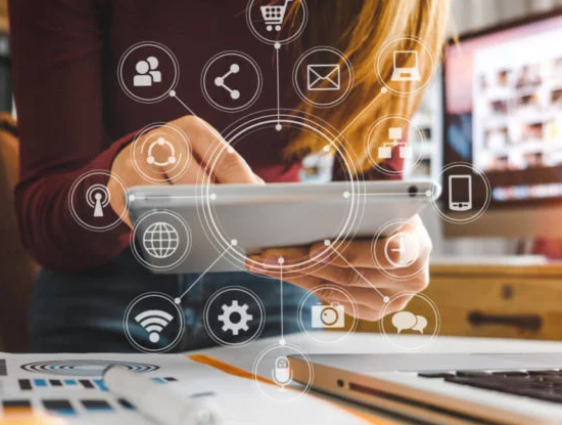



Artificial intelligence is rapidly transforming the business and corporate landscape, presenting unprecedented opportunities for efficiency gains, data-driven decision-making, and enhanced customer experiences. From automating repetitive tasks like data entry and invoice processing to providing sophisticated insights through predictive analytics and machine learning, AI is reshaping workflows across departments. Chatbots powered by AI are improving customer service by offering instant support and personalized recommendations, while AI-driven recruitment tools are streamlining the hiring process.
Building strong relationships hinges on effective communication. It's not merely about exchanging words, but also about actively listening, understanding perspectives, and expressing oneself clearly and empathetically. Honest and open dialogue fosters trust, allowing individuals to connect on a deeper level and navigate challenges collaboratively. By practicing attentive listening, asking clarifying questions, and expressing oneself with respect and vulnerability, we can create a safe and supportive environment where relationships can flourish. Ultimately, communication serves as the bedrock upon which meaningful and lasting connections are built. Companies that strategically implement AI solutions are finding themselves with a competitive edge, able to operate with greater agility and make more informed choices, ultimately leading to increased profitability and sustainable growth.
Designing visuals for business and corporate communication requires a strategic approach, moving beyond mere aesthetics to focus on clear, concise, and impactful messaging. The goal is to enhance understanding, engagement, and ultimately, the desired action from the audience. This involves carefully considering the target audience, the message being conveyed, and the appropriate visual elements – from color palettes and typography to charts, graphs, and imagery. Effective visuals should seamlessly integrate with the overall communication strategy, reinforcing key takeaways and leaving a lasting positive impression.
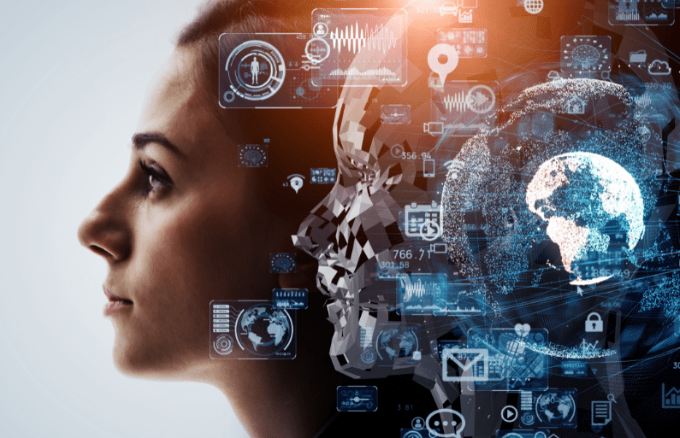



How Automation is Transforming Technical Writing
Content Generation:
AI can create basic drafts of documentation like summaries, descriptions, or simple instructions, freeing up writers to focus on higher-level tasks.
Editing and Proofreading:
AI tools can correct grammatical errors and stylistic inconsistencies, allowing writers to refine content for better user engagement.
Formatting and Layout:
AI can automate formatting tasks like creating tables and lists, ensuring consistent layout and adherence to style guides, which improves user navigation.
DITA Conversion:
AI can assist in converting legacy content to DITA-compliant formats, simplifying the transition to a DITA-based content management system.
Repetitive Tasks:
AI can automate repetitive tasks like formatting, indexing, and generating tables of contents, reducing manual effort and increasing efficiency.
Workflow Automation:
Automation can streamline workflows, including checking the quality of output documents, identifying issues like missing content or outdated information, and improving consistency.
Content Governance:
AI-powered content governance tools can ensure content is compliant with standards, terminology, and maintaining stylistic consistency across the content lifecycle, according to Acrolinx.
The evolution of technical writing through automation represents a paradigm shift rather than a displacement of human expertise. As artificial intelligence and automated tools handle routine tasks like formatting, basic content generation, and initial documentation structuring, technical writers are freed to focus on higher-level strategic activities that require human insight and creativity. This transformation allows writers to dedicate more time to understanding complex user needs, conducting thorough research, crafting nuanced explanations, and developing comprehensive information architectures that truly serve their audiences. The human element becomes more valuable, not less, as writers can now concentrate on the critical thinking, empathy, and strategic vision that machines cannot replicate. Rather than viewing automation as a threat, forward-thinking technical writers are embracing these tools as powerful allies that amplify their capabilities and impact. The profession is evolving toward a more consultative and strategic role, where writers serve as information architects, user experience advocates, and content strategists who leverage automation to enhance their productivity and reach. This transformation ultimately benefits both writers and their audiences: writers gain the capacity to produce more thoughtful, user-centered documentation, while organizations receive higher-quality technical content that better serves their customers and stakeholders. Automation is not replacing technical writers but rather transforming the role, enabling them to be more strategic, efficient, and effective in creating high-quality technical documentation. The future of technical writing lies not in competing with automation, but in harnessing its power to elevate the profession to new heights of effectiveness and influence.
One of the biggest concerns with automation is the loss of personalization and human touch in written communication. Automated systems can create generic and impersonal messages that lack the personal touch and emotion that can be conveyed through traditional written communication. This can lead to misunderstandings or misinterpretations of messages, as recipients may not fully grasp the intent or tone behind automated communications. Furthermore, the reliance on automation in written communication can also pose security risks and privacy concerns. Automated systems may not always be secure, making it easier for sensitive information to be accessed or intercepted by unauthorized individuals. It is important to note that the impact of automation on jobs and the workforce is a complex and often debated topic. Some concerns around automation include job displacement, the need for worker retraining, and ethical considerations around the use of AI.
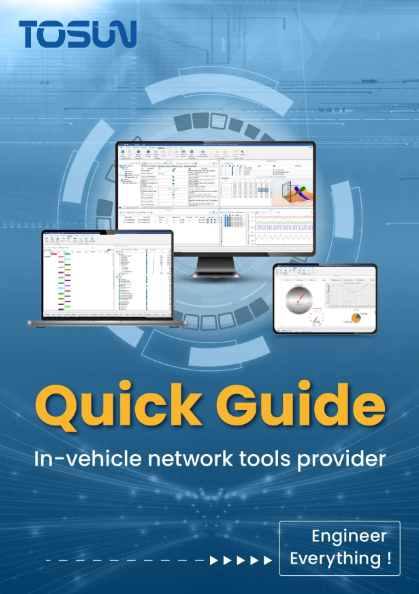

Automation is revolutionizing technical writing by streamlining tasks and enhancing efficiency, allowing writers to focus on more complex and creative aspects of their work. AI-powered tools assist with content generation, editing, formatting, and layout, ultimately improving documentation quality and user experience.


Unified & Seamless Platforms: Integrating communication tools (chat, video, email) into "super-ecosystems" for a cohesive experience across hybrid setups. Employee Well-being as Priority: Communications focus on mental health, reducing noise, and fostering authentic connections to combat burnout. Unified & Seamless Platforms: Integrating communication tools (chat, video, email) into "super-ecosystems" for a cohesive experience across hybrid setups. Video-First & Short-Form Content: Video becomes a prevalent, engaging format for delivering information quickly, especially short-form clips. ESG & Sustainability Focus: Communicating ESG (Environmental, Social, Governance) initiatives becomes a core business priority, not just a talking point. Manager Enablement: Equipping people managers with toolkits to be the most trusted and effective communicators for their teams. Hybrid Work Maturity: Treating hybrid models as the standard, ensuring seamless, inclusive communication for all employees, regardless of location. Strategic Blending of Digital & Physical: Balancing digital-first strategies with purposeful in-person touchpoints for deeper engagement.
Corporate Communication: Integration and Impact
As corporate communications evolve at an unprecedented pace, ten interconnected trends are fundamentally reshaping how organizations connect with their workforces and stakeholders. AI-powered tools are revolutionizing content creation, personalization, and sentiment analysis, enabling communicators to work with greater efficiency while delivering more relevant, data-driven messaging that predicts and responds to engagement patterns in real-time. This technological advancement fuels hyper-personalization that moves beyond broad demographic segments to tailor messages, channels, and content to individual employee needs, roles, and preferences, creating communications that resonate on a personal level. Yet even as technology advances, the human element remains paramount—authentic storytelling that connects emotionally with organizational values, purpose, and real-world impact continues to drive loyalty and meaningful engagement in ways that algorithms alone cannot achieve. Organizations are prioritizing employee well-being by using communications to address mental health, reduce information overload, and foster genuine connections that combat burnout in an always-on digital world. The rise of video-first strategies, particularly short-form content that delivers information quickly and memorably, reflects changing consumption preferences across generations. Meanwhile, ESG and sustainability communications have evolved from peripheral talking points to core business priorities that demonstrate organizational commitment to environmental and social responsibility.
Ten trends shaping corporate communications include heavy AI integration for efficiency, hyper-personalization via data, a continued focus on authentic storytelling, and managing hybrid/remote work with unified platforms. Prioritizing employee well-being, the rise of video, increased focus on sustainability/ESG, enhanced manager enablement, unified tech ecosystems, and a blend of digital with strategic in-person touchpoints for deeper connection
AI-Powered Content & Insights: AI drives content creation, personalization, sentiment analysis, and predictive engagement, boosting efficiency and relevance. Hyper-Personalization: Moving beyond segments to tailor messages, channels, and content to individual employee needs and roles. Authentic Storytelling & Purpose: Using narratives to connect emotionally with values, purpose, and real-world impact, fostering loyalty.
Forward-thinking companies are investing in manager enablement, recognizing that equipped and empowered people managers serve as the most trusted and effective communicators within their teams. The maturation of hybrid work models demands unified technology ecosystems that integrate chat, video, email, and collaboration tools into seamless platforms, ensuring inclusive communication regardless of location. Finally, successful organizations are strategically blending digital-first approaches with purposeful in-person touchpoints, recognizing that while technology enables scale and efficiency, face-to-face interactions create the depth of connection that builds lasting relationships and organizational culture. Together, these trends signal a future where corporate communications become more intelligent, personalized, authentic, and human-centered—leveraging technology not to replace genuine connection, but to amplify it across increasingly complex and distributed organizational landscapes.




The rise of video-first strategies, particularly short-form content that delivers information quickly and memorably, reflects changing consumption preferences across generations. Meanwhile, ESG and sustainability communications have evolved from peripheral talking points to core business priorities that demonstrate organizational commitment to environmental and social responsibility.
The future of communication involves increased automation and AI, potentially including AI-driven buying decisions and task automation. However, human skills such as communication, empathy, and negotiation remain crucial, with some suggesting a "centaur" model of human and AI collaboration for optimal results. Conversely, concerns exist regarding AI's compatibility with secure data transmission and user privacy in communication tools. Additionally, despite technological advancements making communication easier, the potential for miscommunication remains a challenge. Automation refers to the use of technology, control systems, and information technologies to reduce the need for human intervention in processes. Automation can provide several benefits, including increased efficiency. Automated systems can perform tasks more quickly and consistently than humans, leading to improved productivity and reduced errors.
Embracing the Evolution of Communication
As we stand at the intersection of technological innovation and timeless human connection, the future of communication presents both extraordinary opportunities and important considerations. Artificial intelligence and automation are transforming how we create content, analyze sentiment, personalize messaging, and streamline routine communication tasks, offering unprecedented efficiency and the potential for AI-driven decision support that augments human judgment. The emerging "centaur" model—where human expertise collaborates seamlessly with AI capabilities—represents the optimal path forward, leveraging technology's speed and data processing power while preserving the irreplaceable human skills of empathy, nuanced understanding, creative problem-solving, and relationship building that no algorithm can replicate. Automated systems deliver measurable benefits including increased efficiency, consistent performance, reduced errors, and the freedom for professionals to focus on high-value strategic work that requires emotional intelligence and contextual judgment. However, this technological evolution demands thoughtful implementation that addresses legitimate concerns about data security, user privacy, and the paradox that while technology makes communication easier and more accessible, it simultaneously introduces new opportunities for miscommunication when digital interactions lack the richness of tone, body language, and immediate feedback that characterize face-to-face exchanges.
Your Path Forward: Strategic Communication as Competitive Advantage
Throughout this exploration of communication fundamentals, business applications, and emerging trends, one truth remains constant: effective communication is not merely a soft skill but a strategic imperative that directly impacts organizational success, professional advancement, and meaningful human connection. Whether you're building trust through authentic digital presence, navigating the complexities of hybrid work environments, harnessing technology to personalize employee engagement, or developing the leadership communication skills that inspire teams toward shared purpose, the principles of clarity, authenticity, empathy, and strategic intent provide your foundation. The organizations and professionals who will thrive in this rapidly evolving landscape are those who embrace continuous learning, remain adaptable to new tools and platforms while staying grounded in fundamental communication principles, and recognize that technology should amplify rather than replace genuine human connection. As you move forward in your communication journey—whether leading teams, building business relationships, crafting digital strategies, or simply striving to connect more meaningfully with those around you—remember that every interaction represents an opportunity to build trust, create understanding, and generate the shared meaning that transforms individual efforts into collective achievement. The future belongs to those who can master both the art and science of communication, wielding cutting-edge tools with human wisdom to create connections that matter, conversations that inspire, and outcomes that endure.
